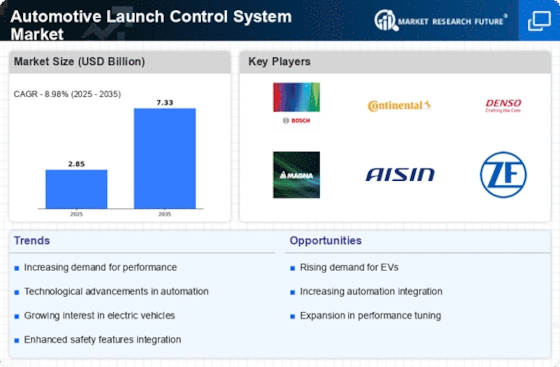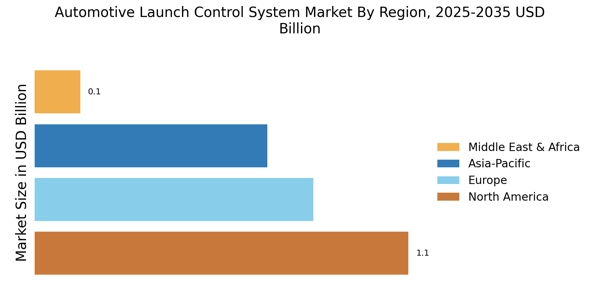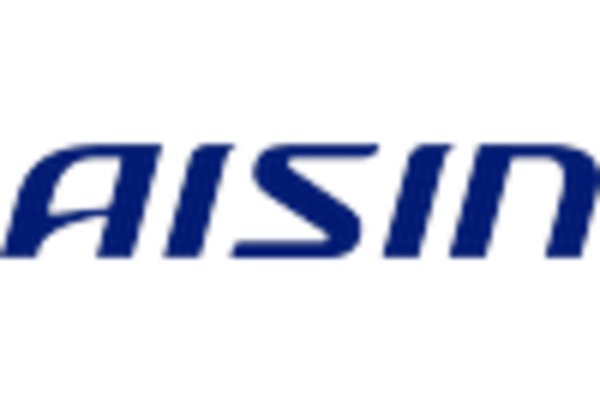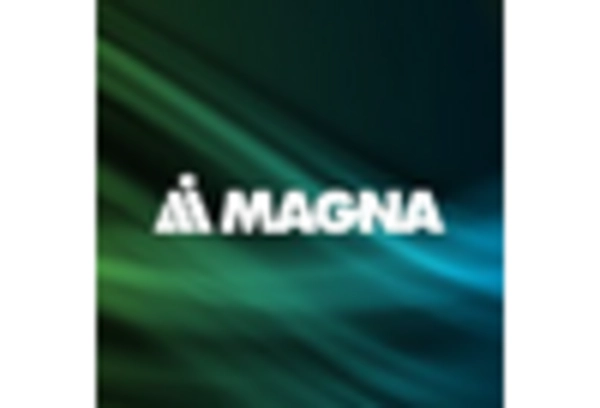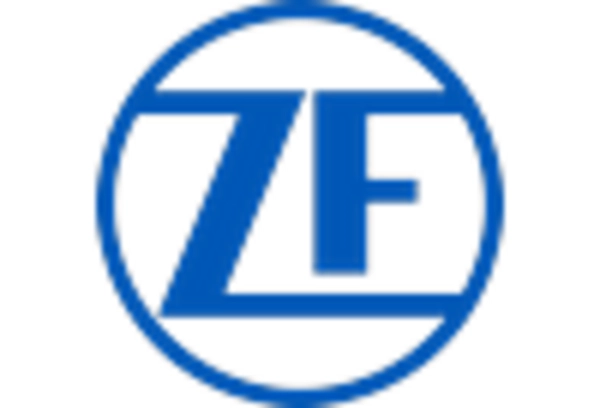Increasing Focus on Safety Features
The Automotive Launch Control System Market is also being shaped by an increasing focus on safety features in vehicles. As consumers become more safety-conscious, manufacturers are incorporating advanced safety technologies into their vehicles, including launch control systems that enhance stability and control during acceleration. This trend is particularly evident in the luxury and performance vehicle segments, where safety and performance are paramount. Market data suggests that the demand for vehicles equipped with advanced safety features is expected to rise by approximately 10% over the next few years. Consequently, the Automotive Launch Control System Market is likely to benefit from this shift, as launch control systems contribute to safer driving experiences.
Growth of Electric and Hybrid Vehicles
The growth of electric and hybrid vehicles is emerging as a significant driver for the Automotive Launch Control System Market. As the automotive landscape shifts towards electrification, manufacturers are increasingly integrating launch control systems into electric and hybrid models to enhance performance. These systems are crucial for optimizing torque delivery and improving acceleration in electric powertrains. Market analysts predict that the electric vehicle segment will account for a substantial share of the automotive market, with projections indicating a growth rate of around 15% annually. This transition towards electrification is likely to create new opportunities for the Automotive Launch Control System Market, as manufacturers seek to differentiate their electric offerings through advanced performance features.
Rising Demand for High-Performance Vehicles
The Automotive Launch Control System Market is experiencing a surge in demand for high-performance vehicles, particularly among automotive enthusiasts and professional racers. This demand is driven by the increasing popularity of motorsports and the desire for enhanced driving experiences. As manufacturers strive to meet consumer expectations, the integration of launch control systems has become a focal point. According to industry estimates, the market for high-performance vehicles is projected to grow at a compound annual growth rate of approximately 8% over the next five years. This growth is likely to propel the Automotive Launch Control System Market, as these systems are essential for optimizing acceleration and improving overall vehicle performance.
Consumer Preference for Enhanced Driving Experiences
Consumer preference for enhanced driving experiences is a pivotal factor driving the Automotive Launch Control System Market. As drivers seek more engaging and dynamic vehicle performance, the demand for launch control systems is on the rise. These systems provide drivers with the ability to achieve optimal acceleration, making them particularly appealing to performance-oriented consumers. Market Research Future indicates that a significant percentage of consumers are willing to pay a premium for vehicles equipped with advanced performance features, including launch control. This trend is expected to continue, with the Automotive Launch Control System Market likely to expand as manufacturers respond to consumer desires for improved driving experiences.
Technological Advancements in Automotive Engineering
Technological advancements in automotive engineering are significantly influencing the Automotive Launch Control System Market. Innovations such as artificial intelligence, machine learning, and advanced sensor technologies are being integrated into launch control systems, enhancing their functionality and reliability. These advancements allow for more precise control of engine parameters, resulting in improved acceleration and performance. The market is expected to witness a notable increase in the adoption of these technologies, with projections indicating a growth rate of around 7% annually. As manufacturers continue to invest in research and development, the Automotive Launch Control System Market is poised for substantial growth, driven by the demand for cutting-edge automotive technologies.


